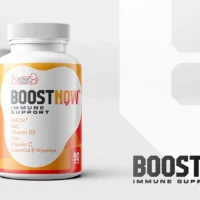Introduction to Immunity: From Basics to Myths
In our rapidly changing world, the quest for optimal health has never been more paramount. As we navigate the vast ocean of information available at our fingertips, the landscape of immune health continually evolves, presenting both challenges and opportunities. This journey, while enlightening, is also riddled with myths and misconceptions, making it imperative for us to discern fact from fiction.
The immune system, often visualized as an intricate fortress defending our body, is our primary line of defense against external invaders. But what exactly is this system, and how does it function? At its core, the immune system is a complex network of cells, tissues, and organs, all working in harmony to protect us from harmful pathogens like bacteria, viruses, and other foreign substances.
The key players in this defense mechanism are white blood cells, which can be further categorized into two types: phagocytes and lymphocytes. Phagocytes are the body’s first line of defense, engulfing and destroying invaders. Lymphocytes, on the other hand, remember previous attackers and help the body recognize and combat them if they return.
Organs such as the spleen, thymus, bone marrow, and lymph nodes play pivotal roles in producing and maturing these cells. The bone marrow, for instance, is the birthplace of white blood cells, while the spleen filters the blood, removing damaged cells and microbes. The lymph nodes produce and store cells that fight infection and disease.
However, as we delve deeper into understanding this marvel of biological engineering, it’s essential to approach with caution. The age of information, while a boon, has also given rise to numerous myths surrounding immune health. As we embark on this exploration, our goal is to separate the wheat from the chaff, providing a clear, evidence-based understanding of our body’s incredible defense system.
Myth 1: “Vitamin C Cures Colds Instantly”
In the realm of health and wellness, few nutrients have garnered as much attention and acclaim as Vitamin C. Often hailed as the go-to remedy at the first sign of a sniffle, many believe that loading up on this vitamin can instantly cure a cold. But how much truth is there to this widely held belief?
The Role of Vitamin C
Vitamin C, also known as ascorbic acid, is an essential nutrient that plays a myriad of roles in our body. It’s a powerful antioxidant, protecting our cells from damage by free radicals. It’s also crucial for the production of collagen, a protein that helps wounds heal. Moreover, Vitamin C enhances the absorption of iron from plant-based foods and supports the proper functioning of our immune system.
Vitamin C and Colds: The Science
The idea that Vitamin C can cure colds dates back to the 1970s when Nobel laureate Linus Pauling proposed that high doses of Vitamin C could prevent and alleviate the common cold. Since then, numerous studies have been conducted to test this theory.
While it’s true that Vitamin C plays a role in supporting immune function, the evidence regarding its ability to prevent or treat the common cold is mixed. Some studies suggest that regular intake of Vitamin C can reduce the duration of a cold, but it doesn’t necessarily prevent its onset. Moreover, for the general population, taking Vitamin C supplements does not reduce the risk of catching a cold. However, for people under intense physical stress, like marathon runners, there’s some evidence that Vitamin C might be beneficial in warding off colds.

It’s also worth noting that while moderate Vitamin C intake can be beneficial, excessive amounts can lead to side effects like stomach cramps and diarrhea. The body also excretes any excess Vitamin C that it doesn’t use, so mega-dosing doesn’t necessarily provide added benefits.
In conclusion, while Vitamin C is undeniably essential for our overall health and does support our immune system, it’s not a magic bullet that can instantly cure a cold. It’s always best to approach health claims with a critical mind and rely on a balanced diet and lifestyle to support immune health.
Myth 2: “You Should Avoid All Germs”
In today’s world, where hand sanitizers and antibacterial wipes have become staples in many households, there’s a prevailing notion that all germs are bad and must be avoided at all costs. This belief has been further amplified by catchy marketing campaigns and a general fear of illness. But is this blanket aversion to germs truly justified?
Exposure and Immune Development
From the moment we’re born, our bodies are exposed to a myriad of microbes, both harmful and beneficial. This exposure is not only inevitable but also crucial for the development of a robust immune system. When our immune system encounters various microbes, it learns to differentiate between friend and foe, building a memory of harmful pathogens and creating defenses against them.
Childhood, in particular, is a critical period for this microbial education. Children who are exposed to a diverse range of microbes often develop stronger immune systems than those raised in overly sterile environments. This phenomenon is supported by the “hygiene hypothesis,” which suggests that early exposure to certain germs and infections can prime the immune system, reducing the risk of allergic diseases.
Harmful Pathogens vs. Everyday Microbes
While it’s essential to understand the value of microbial exposure, it’s equally important to differentiate between harmful pathogens and everyday microbes. Not all germs are created equal.
Harmful pathogens, such as certain bacteria, viruses, and fungi, can cause diseases and infections. These are the culprits behind illnesses like the flu, tuberculosis, and strep throat. It’s essential to take precautions against these, especially in environments where the risk of transmission is high.
On the other hand, everyday microbes are the billions of bacteria and other microorganisms that coexist with us. Many of these are not only harmless but also beneficial. For instance, our gut is home to a diverse community of bacteria that aid in digestion, produce essential vitamins, and even regulate our immune response. These beneficial bacteria, often referred to as probiotics, play a pivotal role in our overall health.
In conclusion, while it’s prudent to protect ourselves from harmful pathogens, avoiding all germs is neither feasible nor beneficial. Embracing a balanced perspective, where we understand the value of microbial exposure while taking necessary precautions against genuine threats, is the key to holistic health.
Myth 3: “Vaccines Weaken the Immune System”
In the age of information, where knowledge is readily accessible, it’s paradoxical that misconceptions still thrive. One such persistent myth is the belief that vaccines, designed to protect us, actually weaken our immune system. Let’s delve into the science of vaccines and dispel this myth.
The Mechanism of Vaccines
Vaccines are one of the most profound achievements in the realm of public health. At their core, vaccines are designed to mimic the disease agents they protect against, without causing the disease itself. They achieve this by introducing a small, harmless piece of the pathogen, be it a dead or weakened form, or even just a fragment, into the body. This exposure prompts the immune system to produce a response, including the creation of antibodies.
Once these antibodies are produced, the immune system “remembers” the pathogen. If the individual is later exposed to the actual disease agent, the immune system can swiftly recognize and combat it, preventing the disease or significantly reducing its severity.
Vaccines and Immune Strength
Contrary to the myth, vaccines do not weaken the immune system; they train it. By simulating an infection, vaccines provide the immune system with a “practice run” of sorts. This rehearsal ensures that the immune system can efficiently respond to the actual pathogen if encountered in the future.
Moreover, natural infections can sometimes lead to severe complications, even with diseases that might seem benign. Vaccines allow individuals to gain immunity without suffering from the potential adverse effects of the actual disease.
Addressing Concerns
It’s essential to acknowledge and address the concerns that have given rise to vaccine myths. Some fear that receiving multiple vaccines can overwhelm the immune system. However, research has shown that vaccines constitute a tiny fraction of the pathogens our immune systems encounter daily. Even infants, with their developing immune systems, can effectively respond to the multiple vaccines they receive.
Another concern revolves around vaccine ingredients, such as adjuvants, which are substances added to enhance the body’s immune response to the vaccine. It’s crucial to understand that these ingredients are used in safe amounts and have undergone rigorous testing to ensure their safety.
In conclusion, vaccines are a testament to the power of science and human ingenuity. They equip our immune system with the tools it needs to combat potentially harmful pathogens. As with any medical intervention, it’s essential to be informed, but it’s equally vital to differentiate between evidence-based information and myths.
Myth 4: “Supplements Alone Can Boost Immunity”
The allure of a quick fix is undeniable. In our fast-paced world, the promise of a pill or potion that can instantly bolster our immune system is tempting. This has led to the widespread belief that merely popping a supplement can be the panacea for all our immune woes. But how much of this is fact, and how much is fiction?
The Role of Supplements in a Balanced Diet
Supplements, as the name suggests, are meant to “supplement” our diet, not replace it. They are designed to fill nutritional gaps, ensuring we get the essential vitamins and minerals that might be lacking in our daily intake. For individuals with specific deficiencies or those who have difficulty obtaining certain nutrients from food sources, supplements can indeed play a pivotal role in supporting immune health.

However, relying solely on supplements is a flawed approach. Our immune system, intricate and multifaceted, requires a symphony of nutrients to function optimally. These nutrients are best obtained from a diverse and balanced diet that includes a variety of fruits, vegetables, proteins, and whole grains. Real food provides a complex nutritional matrix that supplements cannot replicate, offering a blend of vitamins, minerals, antioxidants, and phytonutrients that work synergistically to support our health.
Introducing BoostNow: A Comprehensive Approach to Immune Health
While the value of a balanced diet cannot be overstated, there’s also a place for well-formulated supplements that complement our dietary intake. Enter BoostNow—a blend crafted with the modern individual in mind.
BoostNow is not just another supplement; it’s a comprehensive solution. It combines the power of traditional ingredients, like Vitamin C and Zinc, with innovative additions like EpiCor (Saccharomyces) and Astragalus, offering a multi-pronged approach to immune health. The blend ensures that while you’re getting the targeted support of specific ingredients, you’re also benefiting from their synergistic effects.

However, it’s essential to understand that BoostNow, or any supplement for that matter, works best when integrated into a lifestyle that prioritizes overall well-being. This includes a balanced diet, regular exercise, adequate sleep, and stress management.
In conclusion, while supplements like BoostNow can play a valuable role in supporting our immune health, they are most effective when used as part of a broader, holistic approach to well-being. It’s the harmony of diet, lifestyle, and targeted supplementation that truly holds the key to robust immune health.
Myth 5: “Only Cold Weather Lowers Immunity”
The changing of the seasons often brings with it a host of health beliefs, one of the most common being that cold weather is the primary culprit behind weakened immunity. While winter does see a spike in certain illnesses, attributing this solely to the cold is an oversimplification. Let’s delve deeper into the factors that influence our immune health throughout the year.
Factors Affecting Immunity Across Different Seasons
- Viral Behavior: Some viruses, like the influenza virus, tend to circulate more during colder months. However, this doesn’t mean they’re absent in warmer seasons. Their prevalence is influenced by factors beyond just temperature, such as humidity and human behavior.
- Indoor Crowding: During colder months, people tend to stay indoors more, leading to close contact with others. This can facilitate the spread of infectious agents, especially in poorly ventilated spaces.
- Vitamin D Levels: Sunlight exposure, which is reduced in winter, is a primary source of Vitamin D for many. A deficiency in this vitamin can impact immune function.
- Holiday Gatherings: The colder months coincide with several major holidays, leading to gatherings and increased human interaction, potentially facilitating the spread of germs.
- Seasonal Allergies: Spring and fall introduce pollen and other allergens, which can strain the immune system and make individuals more susceptible to other illnesses.
- Dietary Changes: People’s diets can vary with the seasons. The consumption of fresh fruits and vegetables might decrease in colder months, leading to reduced intake of essential vitamins and antioxidants.
Tips for Staying Healthy Year-Round
- Maintain a Balanced Diet: Ensure you’re getting a variety of nutrients throughout the year, supplementing when necessary.
- Stay Hydrated: Drink plenty of water, irrespective of the season.
- Practice Good Hygiene: Regular handwashing and maintaining personal hygiene can reduce the risk of infections.
- Stay Active: Engage in regular physical activity, whether it’s a summer swim or a winter walk.
- Manage Stress: Chronic stress can weaken the immune system, so find ways to relax and manage stressors, be it through meditation, hobbies, or other activities.
- Regular Health Check-ups: Regular visits to your healthcare provider can help in early detection and management of potential health issues.
- Stay Informed: Be aware of any seasonal illnesses prevalent in your area and take necessary precautions.
In conclusion, while cold weather can introduce certain challenges to our immune health, it’s essential to recognize that our immunity is influenced by a myriad of factors throughout the year. By understanding these and taking a proactive, holistic approach to health, we can ensure robust immune function regardless of the season.
Emerging Myths of 2023
As we navigate the ever-evolving landscape of health and wellness in 2023, the rapid dissemination of information, both accurate and misleading, has given rise to a new set of myths. In an age where a single tweet or viral video can shape public opinion, it’s more crucial than ever to discern fact from fiction.
New Misconceptions in the Age of Rapid Information
- Tech-Induced Immunity: With the rise of wearable tech and health apps, there’s a burgeoning belief that constant health monitoring can directly boost immunity. While being informed about one’s health is beneficial, merely tracking metrics doesn’t enhance immune function.
- Instant Immunity Boosters: The promise of immediate results is tempting. New products claiming to “supercharge” your immune system in hours are gaining traction. True immune support is a sustained effort, not a quick fix.
- Genetic Immunity Editing: As CRISPR and other genetic editing tools become more mainstream, there’s a misconception that we can “edit” our genes for perfect immunity. While there are genetic therapies in development, they are primarily for specific conditions and not for general immune enhancement.
Debunking the Latest False Claims
- Natural Doesn’t Always Mean Safe: Just because a product is labeled “natural” doesn’t mean it’s beneficial or even safe. It’s essential to research and consult healthcare professionals before trying new remedies.
- More Isn’t Always Better: Overloading on certain vitamins or supplements, even if they support immunity, can have adverse effects. Balance is key.
- Avoiding All Illness is Impossible (and Unnecessary): The goal isn’t to avoid all pathogens but to have a robust immune response when exposed. Some exposure is essential for a healthy immune system.
In our quest for robust immunity, it’s essential to adopt a holistic approach. This includes a balanced diet, a healthy lifestyle, and, when necessary, supplements that complement our dietary intake.
BoostNow, for instance, offers a comprehensive blend of ingredients designed to support various facets of immune health. From traditional ingredients like Vitamin C and Zinc to innovative additions like EpiCor (Saccharomyces), BoostNow is a testament to the synergy of nature and science. It’s not just about individual ingredients but the collective benefit they offer when combined.








